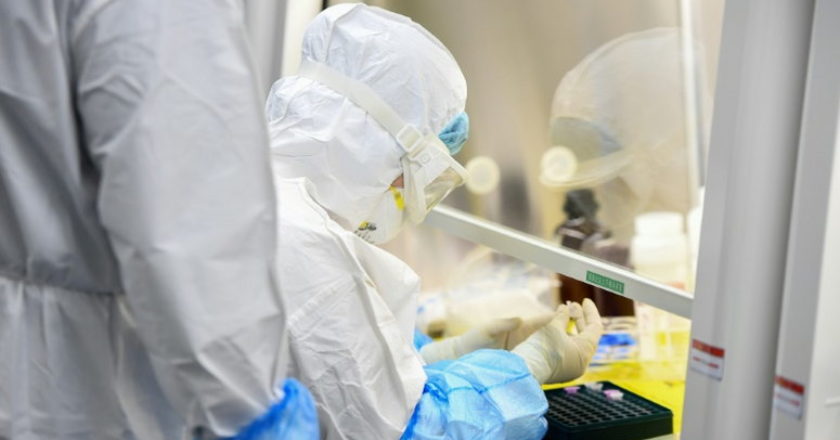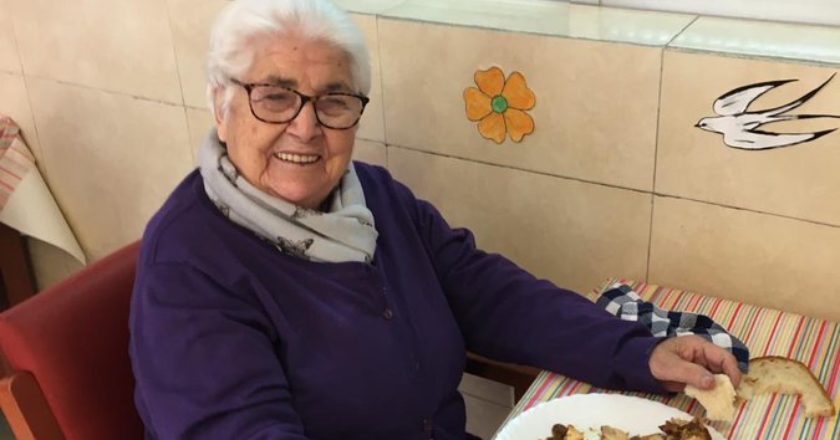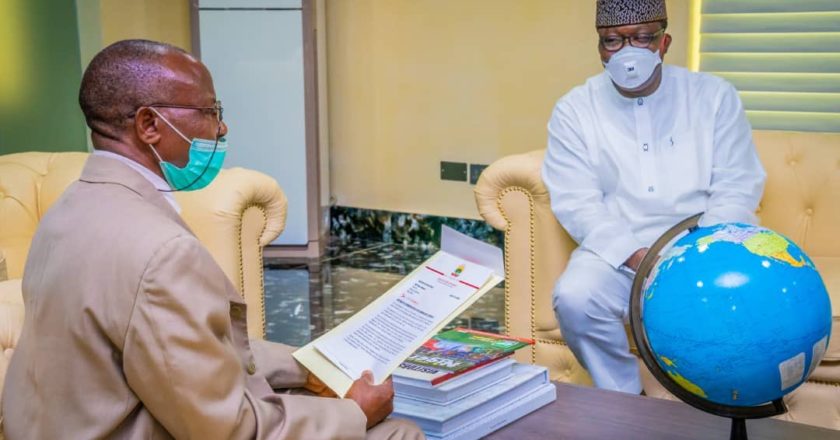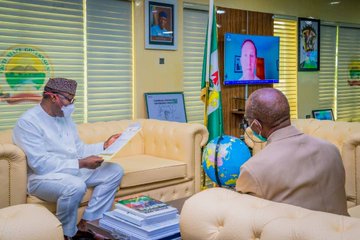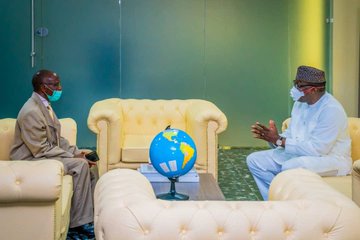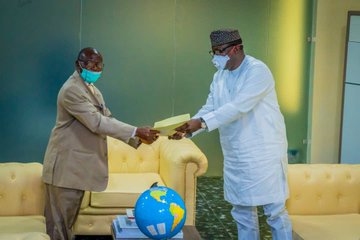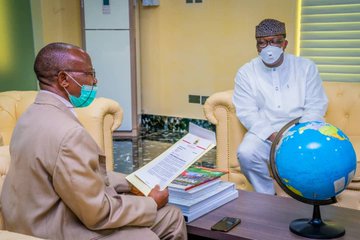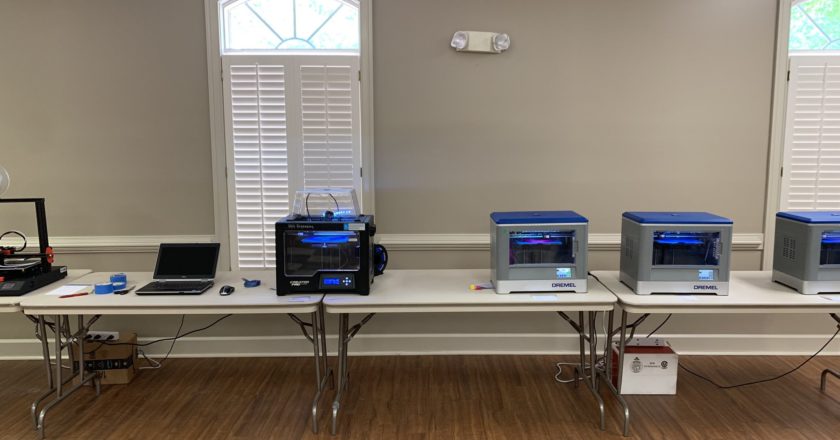Stunning drops in crude oil prices—the result of COVID-19-related declines in demand and an oil price war between Saudi Arabia and Russia—have been taking their toll around the globe this spring. For Africa’s oil-producing countries, where crude oil exports make up a large portion of their revenue, the situation is especially dire.
In Nigeria, for example, Finance Minister Zainab Ahmed recently warned of an imminent recession and requested billions of dollars in international emergency funding. As of the second week of April, national oil production in Angola was expected to fall from 1.8 million to 1.36 million barrels per day as the government prepared to freeze 30% of its goods and services budget. And Ghana, according to the Africa Centre for Energy Policy, stands to see a 53% shortfall this year in projected revenue from crude oil sales. There are similar difficulties across the continent.
There has been a ray of hope: a landmark production-cut agreement among OPEC, OPEC+ and G20 stakeholders on April 12 put an end to the oil price war. Shortly after that historical agreement, the African Petroleum Producers Organization (APPO) committed to significant crude production cuts of its own, effective May 1. While demand remains a concern, the production cuts will help lower oil inventories and should bring some stability to the oil market.
I am not saying we can expect smooth sailing from this point on. There’s no denying that the COVID-19 pandemic will continue to test African countries on multiple fronts, from the health and safety dangers it poses to our people to the economic devastation and low demand for crude. The situation is painful, but it’s not permanent. And when this chapter is over, African countries will recover.
Also Read: Opinion: After COVID-19, what will Africa look like in 2030 and 2063? | By: Banji Oyelaran-Oyeyinka
This is the time to lay the framework for that recovery. When demand for crude oil increases again, and it will, Africa will need exploration and production activities to resume. That means oil and gas ministries should be working now on regulations that foster a more enabling environment for investors and businesses. We should be fine-tuning our local content policies and exploring technologies that can contribute to a leaner, more profitable petroleum sector. Last October, I released a book that explains how we can accomplish these things, along with other measures that will help Africa better capitalize on its oil and gas resources. The ideas and examples it provides remain on point. We can still do this.
Exploring Solutions
With demand for oil at a historic low, it may seem odd to talk about E&P activity. But, as I have said, the situation we find ourselves in now is temporary. After we get through the current crisis, production will play a critical role in our economic recovery. We need indigenous companies involved so employees, business partners, and suppliers can benefit from these activities. We also need foreign companies that are willing to share knowledge and technology—and to create economic opportunities in the communities where they operate. That’s why it’s vital that government leaders take steps now to remove obstacles to launching production, from red tape and lengthy delays to excessive taxes. Governments also need to support smaller independent companies by breaking exploration maps into smaller sections. And we need better fiscal terms for companies like breaks on import duties.
This isn’t my first time to call for these things, I cover them in-depth in my book, Billions at Play: The Future of African Energy and Doing Deals. But in the COVID-19 era, they’ve become more important than ever.
Local Content: Striking a Balance
African countries need to develop fair, balanced local content policies that create economic and educational opportunities for Africans without overly burdening foreign investors and discouraging them from operating here. A shining example of this kind of balance can be found in Equatorial Guinea, which I wrote about in Billions at Play. “The government enacted requirements for international companies to hire Equatoguineans, contribute to training programs, and work with local subcontractors. They were careful to balance the need to boost local industry, however, with the limitations of the current local industry. They understood how unrealistic it was to require 100 percent local content until more training, education, and local capacity in that field is created.”
I’d like to see more African countries consider the example of Equatorial Guinea, along with successful local content policies in Nigeria and Angola, also covered in my book. Effective local content is key to helping everyday Africans realize the benefits of Africa’s oil and gas resources. This is a good time for leaders to look at what works and what doesn’t in their own policies and make the necessary adjustments.
It’s Time for More Tech
COVID-19 has forced companies around the globe to rely on technology to function, whether they’re using it to hold virtual meetings or monitor vital assets. I’m confident that technological solutions will play an important role in the comeback of Africa’s oil & gas industry, too. In my book, I described technology’s potential to help indigenous African oil & gas companies operate more efficiently and boost profits, which in turn, benefits their communities and promotes economic growth. “Innovations such as the development of new ways to drill wells and handle equipment, the design of new seismic data collection programs, the management of petroleum data systems, and the monitoring and protection of internet-connected equipment have the potential to redefine how business is done in this sector.”
Now, with economic difficulties and low oil prices, benefits like these could be more valuable than ever. I encourage African oil and gas companies to work with one another, and with local tech firms, to augment their technological capacities. African companies also should be pursuing partnerships with foreign investors that are open to technical knowledge and skills transfers. Billions at Play describes the successes that Angola-based Friburge Oil & Gas has had partnering with international technology providers to drive efficiency and environmentally friendly production methods. We need to see more companies doing the same. Governments can support these efforts through local content policies that call for knowledge sharing, along with the creation of educational initiatives and public-private partnerships.
Also Read: Mitigating COVID-19’s impact on Africa’s food systems ~ By Atsuko Toda and Martin Fregene
Long before the unthinkable happened, and COVID-19 changed our world, I made a case for strategically harnessing Africa’s oil and gas resources to create stability and economic growth. Now, because of the pandemic, we find ourselves in a difficult place with extremely low oil prices and faltering economies. As a result, some of those strategies I’ve recommended may have to go on hold. Nevertheless, the steps I’ve put forth to help us reap the full benefits of our petroleum resources will still have merit when we emerge from this trial. If we start preparing now to set them in place, they’re even more likely to be successful.
NJ Ayuk is Executive Chairman of the African Energy Chamber, CEO of pan-African corporate law conglomerate Centurion Law Group, and the author of several books about the oil and gas industry in Africa, including Billions at Play: The Future of African Energy and Doing Deals.

